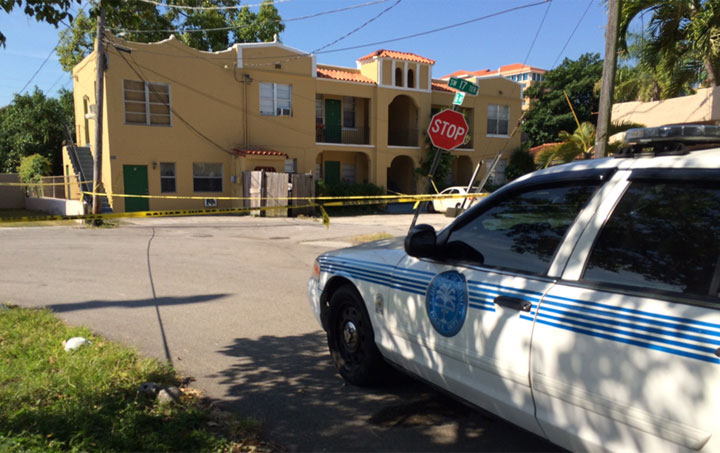The teenage son of a Canadian diplomat arrested in Florida, following the shooting death of his older brother, won’t benefit from any sort of diplomatic immunity if he is tried on a charge of felony murder.

Miami police arrested 15-year-old Marc Wabafiyebazu, son of Consul General Roxanne Dubé, on a charge of felony murder after his 17-year-old brother, Jean, was shot and killed on Monday along with a second young man.
READ MORE: Canadian diplomat’s son arrested after brother killed in Florida shooting
While Dubé may be a high-ranking consular official, family members of consular officers have “no personal inviolability and no jurisdictional immunity of any kind,” the U.S. Department of State explains on its website.
Dubé was appointed to the position of Consul General in Miami last November. While she is a high-ranking staff member at a diplomatic mission, she does not fall under the category of diplomatic agent.
A consular official is responsible for representing the interests of Canadian citizens to local officials, a Canadian government official said.
As a consular officer she has only “functional immunity in respect of both criminal and civil matters and their personal inviolability is limited,” according to the State Department.
“They only have immunity for official acts, with respect to both criminal and civil matters,” a U.S. State Department official told Global News.
The official explained that accreditation for consular officials is given under the Vienna Convention on Consular Relations, to which Canada is a signatory, and must be authorized by the sending and host countries.
If a consular officer — an official posted to represent the interests of Canadian citizens — commits a crime that is considered a felony, he or she may be “arrested or detained pending trial.” They can also be charged with misdemeanor offences, but not have to stay in police custody while awaiting trial or disposition.
Their family members have no criminal immunity or inviolability at all.
It is a much different story for diplomats — the ambassadors and other officers who are posted at Canadian embassies to represent the country to national officials in host countries around the world.
Diplomatic agents and members of administrative and technical staff can’t be arrested, made to stand trial or convicted of a criminal offence. Their “recognized” family members get the same immunities.
Some diplomats have certainly the immunity card — including in Canada.
Just last October, a 32-year-old Saudi Arabian diplomat was tailed by several police cars as he sped down an Ottawa street, drunk, in his SUV. Police couldn’t charge him because he had immunity, the National Post reported.
Luckily, no one was hurt in that incident.
But Russian diplomat Andrei Knyazev killed someone, and injured another, while driving drunk in the nation’s capital, in January 2001.
Lawyer Catherine MacLean was killed instantly when Knyazev slammed his vehicle into her, while she walked her dog in Ottawa’s New Edinburgh neighbourhood. MacLean died instantly. Catherine Doré, a friend who was walking with MacLean, suffered severe injuries. Knyazev walked free — for a time. He was brought back home to Russia, where he was eventually convicted of involuntary manslaughter and sentenced to four years in jail.
One small, positive development did come out of that tragic case.
Shortly after MacLean’s death, then-Foreign Affairs Minister John Manley pushed through reforms that led to an automatic one-year driver’s licence suspension for any diplomat caught driving under the influence but refuses to waive diplomatic immunity, the Toronto Sun reported in 2011. If a diplomat gets busted again, he or she will be expelled from the country.





Comments